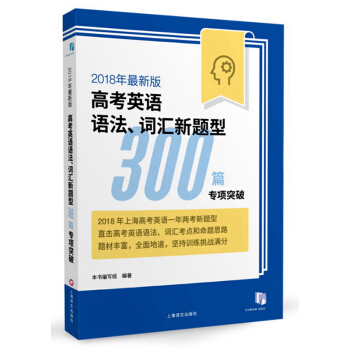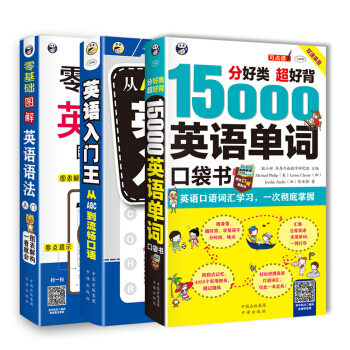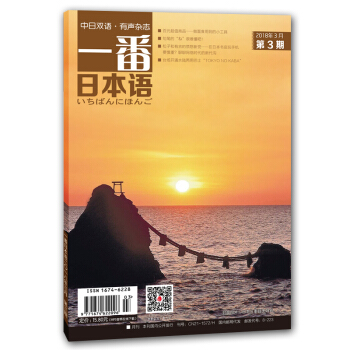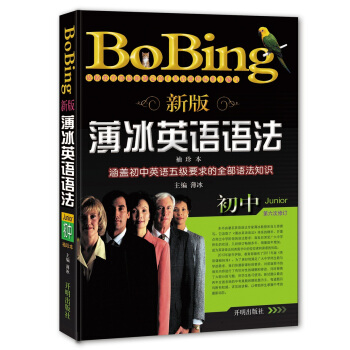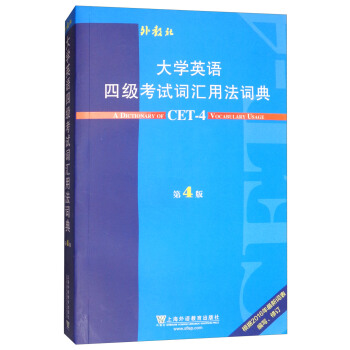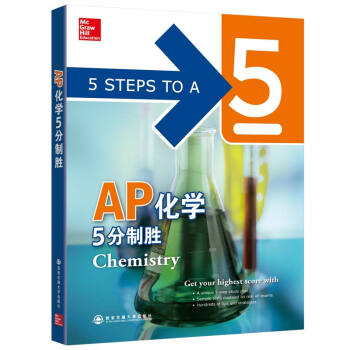

具体描述
产品特色
内容简介
本系列AP考试丛书引进自美国知名教育出版公司McGraw-Hill Education,由AP考试相关领域专家编写,是美国本土大学课堂使用教材,可以帮助考生提前适应全英学习模式。
《AP化学5分制胜》紧扣考试命题特点,以“五步”方案为学习框架,囊括与考试相关的学科要点。同时,还精选针对性练习以及全真模拟试题,配以准确答案和详尽解析,利于考生巩固所学。此外,考生还可在App Store中搜索“AP Planner”免费下载App,量身定制个性化学习日程。
内页插图
目录
STEP 1 Set Up Your Study Program
1 What You Need to Know About the AP Chemistry Exam, 3
Background of the Advanced Placement Program, 3
Who Writes the AP Chemistry Exam? 4
The AP Grades and Who Receives Them, 4
Reasons for Taking the AP Chemistry Exam, 4
Questions Frequently Asked About the AP Chemistry Exam, 5
2 How to Plan Your Time, 9
Three Approaches to Preparing for the AP Chemistry Exam, 9
Calendar for Each Plan, 11
STEP 2 Determine Your Test Readiness
3 Take a Diagnostic Exam, 17
Getting Started: The Diagnostic Exam, 18
Answers and Explanations, 28
Scoring and Interpretation, 32
STEP 3 Develop Strategies for Success
4 How to Approach Each Question Type, 35
Multiple-Choice Questions, 35
Free-Response Questions, 38
STEP 4 Review the Knowledge You Need to Score High,
5 Basics, 45
Units and Measurements, 46
Dimensional Analysis—The Factor Label Method, 47
The States of Matter, 48
The Structure of the Atom, 48
Periodic Table, 52
Oxidation Numbers, 55
Nomenclature Overview, 55
Experimental, 61
Common Mistakes to Avoid, 61
Review Questions, 62
Rapid Review, 67
6 Reactions and Periodicity, 69
AP Exam Format, 70
General Aspects of Chemical Reactions and Equations, 70
General Properties of Aqueous Solutions, 71
Precipitation Reactions, 72
Oxidation–Reduction Reactions, 73
Coordination Compounds, 77
Acid–Base Reactions, 78
Experimental, 82
Common Mistakes to Avoid, 82
Review Questions, 83
Rapid Review, 86
7 Stoichiometry, 88
Moles and Molar Mass, 89
Percent Composition and Empirical Formulas, 89
Reaction Stoichiometry, 91
Limiting Reactants, 92
Percent Yield, 93
Molarity and Solution Calculations, 94
Experimental, 95
Common Mistakes to Avoid, 95
Review Questions, 95
Rapid Review, 101
8 Gases, 102
Kinetic Molecular Theory, 103
Gas Law Relationships, 104
Experimental, 112
Common Mistakes to Avoid, 113
Review Questions, 114
Rapid Review, 118
9 Thermodynamics, 120
Calorimetry, 121
Laws of Thermodynamics, 123
Products Minus Reactants, 123
Thermodynamics and Equilibrium, 127
Experimental, 128
Common Mistakes to Avoid, 128
Review Questions, 129
Rapid Review, 133
10 Spectroscopy, Light, and Electrons, 134
The Nature of Light, 134
Wave Properties of Matter, 136
Atomic Spectra, 136
Atomic Orbitals, 137
Photoelectron (Photoemission) Spectroscopy (PES), 138
Experimental, 139
Common Mistakes to Avoid, 139
Review Questions, 139
Rapid Review, 142
11 Bonding, 144
Lewis Electron-Dot Structures, 145
Ionic and Covalent Bonding, 145
Molecular Geometry—VSEPR, 149
Valence Bond Theory, 151
Molecular Orbital Theory, 153
Resonance, 154
Bond Length, Strength, and Magnetic Properties, 155
Experimental, 155
Common Mistakes to Avoid, 155
Review Questions, 156
Rapid Review, 159
12 Solids, Liquids, and Intermolecular Forces, 162
Structures and Intermolecular Forces, 163
The Liquid State, 164
The Solid State, 165
Phase Diagrams, 167
Relationship of Intermolecular Forces to Phase Changes, 169
Experimental, 169
Common Mistakes to Avoid, 169
Review Questions, 169
Rapid Review, 172
13 Solutions and Colligative Properties, 173
Concentration Units, 174
Electrolytes and Nonelectrolytes, 177
Colligative Properties, 177
Colloids, 181
Experimental, 182
Common Mistakes to Avoid, 182
Review Questions, 182
Rapid Review, 186
14 Kinetics, 188
Rates of Reaction, 189
Integrated Rate Laws, 192
Activation Energy, 193
Reaction Mechanisms, 194
Catalysts, 195
Experimental, 195
Common Mistakes to Avoid, 196
Review Questions, 197
Rapid Review, 201
15 Equilibrium, 203
Equilibrium Expressions, 205
Le Chatelier’s Principle, 206
Acid–Base Equilibrium, 207
Buffers, 215
Titration Equilibria, 216
Solubility Equilibria, 220
Other Equilibria, 222
Experimental, 222
Common Mistakes to Avoid, 223
Review Questions, 223
Rapid Review, 229
16 Electrochemistry, 231
Redox Reactions, 232
Electrochemical Cells, 232
Quantitative Aspects of Electrochemistry, 237
Nernst Equation, 239
Experimental, 240
Common Mistakes to Avoid, 240
Review Questions, 241
Rapid Review, 245
17 Nuclear Chemistry, 247
Nuclear Reactions, 247
Nuclear Stability, 249
Nuclear Decay Calculations, 250
Mass–Energy Relationships, 251
Common Mistakes to Avoid, 252
Review Questions, 252
Rapid Review, 254
18 Organic Chemistry, 255
Alkanes, 256
Structural Isomerism, 258
Common Functional Groups, 259
Macromolecules, 261
Experimental, 261
Common Mistakes to Avoid, 261
Review Questions, 262
Rapid Review, 265
19 Experimental Investigation, 266
Experiment 1: Spectroscopy, 267
Experiment 2: Spectrophotometry, 270
Experiment 3: Gravimetric Analysis, 271
Experiment 4: Titration, 272
Experiment 5: Chromatography, 273
Experiment 6: Determination of the Type of Bonding in Solid Samples, 274
Experiment 7: Stoichiometry, 275
Experiment 8: Redox Titration, 276
Experiment 9: Chemical and Physical Changes, 277
Experiment 10: Kinetics, 278
Experiment 11: Rate Laws, 279
Experiment 12: Calorimetry, 280
Experiment 13: Chemical Equilibrium—Le Chatelier’s Principle, 280
Experiment 14: Acid-Base Titrations, 281
Experiment 15: Buffer pH, 282
Experiment 16: The Capacity of a Buffer, 282
Common Mistakes to Avoid, 283
Review Questions, 283
Rapid Review, 285
STEP 5 Build Your Test-Taking Confidence
AP Chemistry Practice Exam 1, 289
AP Chemistry Practice Exam 2, 317
Appendixes
SI Units, 347
Balancing Redox Equations Using the Ion-Electron Method, 349
Common Ions, 353
Bibliography, 356
Web Sites, 357
Glossary, 358
Avoiding “Stupid Mistakes” on the Free-Response Section, 367
Exam Resources, 369
前言/序言
AP项目(Advanced Placement Program)始于1955年,由美国大学理事会(the College Board)主持,是在高中阶段开设的具有大学水平的课程,即大学预修课程。AP项目目前设有34门课程和考试,它可以使有余力、有能力、成绩优秀的高中生有机会先修部分美国大学基础课程以获得大学学分,因此吸引了很多成绩优秀的学生选修。目前,已有60多个国家的几千所大学把AP学分作为其入学参考标准,其中包括哈佛大学、耶鲁大学、牛津大学、剑桥大学等世界知名大学。
美国每年约有200万高中毕业生,他们都要参加美国高考SAT和AP课程的考试。美国高中生会在11年级时完成SAT考试,在12年级(高中最后一年)完成两件大事:第一,根据SAT的考试成绩申请大学和奖学金;第二,选修AP课程,并进行备考。在高中选修AP课程和通过AP考试不仅是对学生能力和学业水平的证明,还可以使学生:1. 在申请大学时具有很大的优势。美国大学把学生在AP考试中的表现作为衡量其是否能够胜任大学学习的依据。从美国大学录取顾问委员会公布的影响大学录取因素的比较分析可以看出,AP成绩以80.3%的影响力位居第一,因为它向学校充分展示了学生的才智、专长及学习能力。2. 进入大学后,可以获得大学学分,免修同类课程,提早选修更高级的课程或跳级。3. 提前毕业。4. 节省大学学费。在美国,初等教育是免费的,但高等教育是收费的。选修的AP课程越多,免修的大学课程也就越多,节省的学费也就越多。另外,对中国学生而言,除了可以获得美国大学学分、省时省钱外,还可以在国内提前适应美国大学课程。
AP考试成绩的评定为5分制,满分5分表示极为优秀,4分为优秀,3分相当于合格,即可为大多数学校所接受,2分为可能有资格,1分则不予推荐。 AP考试在每年5月份举行一次,为期两周。每门课程的考试时间约为2~3个小时,考试费用为每科1100元人民币或1790元港币左右。
更多信息可查询以下网站:
AP考试官网:http://www.collegeboard.com
AP国内报名网站:http://apchina.net.cn
香港考务局报名网址:https://www2.hkeaa.edu.hk
为满足国内考生对AP考试资料日益增长的需求,我们从美国知名教育出版公司McGraw-Hill Education引进了本系列AP考试丛书,共包括7本,分别为《AP微观经济学5分制胜》、《AP宏观经济学5分制胜》、《AP微积分AB 5分制胜》、《AP微积分BC 5分制胜》、《AP美国历史5分制胜》、《AP化学5分制胜》和《AP生物5分制胜》。AP各学科分册由相关领域专家编写,精准把握考试命题特点,设计“五步”高效学习方案,总结与考试相关的学科内容和要点,精选针对性练习以及全真模拟试题,并配以答案和准确详尽的解析。本系列丛书适用于备考AP的所有考生,便于考生巩固所学,紧抓重点,取得高分。
本书为其中的《AP化学5分制胜》。AP化学考试并不简单,但是回报丰厚——换取大学学分以及在化学学习上更进一步。大家需要努力地学习才能取得优异成绩,而本书会帮助你掌握和巩固必备知识,为考试作好准备。本书的两位作者都具有多年大学普通化学的教学经验。John Moore是Chemistry for Dummies一书的作者,他还和Richard Langley共同撰写了Chemistry for the Utterly Confused——一本适用于大学生和高中生的化学指南。两位作者都有丰富的经验和精湛的技能来充分阐述AP化学考试所需的知识和策略。Richard Langley曾任高中理科教师,John Moore也有多年为公立学校的老师和学生教授化学课程的经验。并且,他们都有多年参与AP化学考试阅卷的经验,有关于考试评分方法的第一手资料。两位作者努力使本书的内容易于理解,并严格按照AP化学考试的题型设计测试题。只要考生认真钻研本书中的讲解和题目,就可以对AP所考查的化学知识有更深入的了解,同时增加对考试题型的熟悉程度,从而做到高效备考。
现在来简单介绍一下本书的内容框架。Introduction部分介绍了“五步”计划。第一章对AP化学的考试特点进行了概述。第二章为考生提供了三种备考方案及其时间安排。如果考生选择为期一学年的方案,可以将这本书与自己参加的AP化学课程同步使用。如果考生选择其他两种方案中的一种,也可以与自己参加的AP化学课程同步使用,但是需要更侧重这本辅导书的使用。不管怎样,只要大家付出了时间和努力,就会有收获。第三章是一份预测题,帮助考生评估自己复习前的水平,发现在之后的复习中需要额外注意的薄弱之处。第四章为每个考试题型提出了一些有效的应试策略,让复习更有技巧性。从第五章到第十九章是对化学知识的逐一讲解,涵盖了AP考试中的几乎所有考查内容。本书最后还提供了两套完整的全真模拟试题,可以帮助考生检测复习效果,并体验真实的考试场景。
本书还有一些有利于考生学习的细节设置。例如,每章末尾配有复习题,帮助考生检查自己对相关内容的理解程度。这里提醒一下考生,请特别注意Free-Response Question部分的题目,这是能够让自己有突出表现的部分,且分值与多项选择题几乎相同。此外,还可利用快速回顾(Rapid Review)来复习每章的重点知识。
请随身携带这本书,在接下来的数周或数月内它将成为各位考生的忠实朋友,帮助你们实现“满分5分”的目标!
用户评价
我发现这本书在内容编排上的逻辑性简直无懈可击,它不像某些教材那样把知识点东一块西一块地堆砌起来,而是采取了一种非常精妙的递进式教学方法。从最基础的原子结构和化学键理论开始,每深入一个章节,都会建立在前一个章节知识的基础之上,自然而然地引出更高级、更复杂的概念。这种结构设计极大地降低了初学者理解难点的门槛,让知识体系的构建变得顺畅且有章可循。比如,在讲解热力学时,它会先用非常直观的例子解释什么是焓变和熵变,然后再引入复杂的公式推导,每一步的过渡都处理得极其细腻,让人感觉作者是真正站在考生的角度去设计教学路径的。我以前在学习某些单元时总觉得概念跳跃性太大,但这本书里,每一个“为什么”和“如何实现”都有着严密的逻辑链条来支撑,使得学习过程充满了“豁然开朗”的成就感。
评分这本书的封面设计简洁大气,配色沉稳,一下子就给人一种专业可靠的感觉。拿到手里沉甸甸的,感觉内容一定非常扎实。我特别欣赏它在排版上的用心,字体大小适中,段落之间的留白恰到好处,即便是面对那些复杂的化学方程式和冗长的理论解释,阅读起来也不会感到疲劳。书中的插图和图表质量非常高,色彩准确,逻辑清晰,很多抽象的概念通过这些视觉辅助工具变得一目了然,这对于像我这样需要多维度理解知识的考生来说,简直是福音。尤其是那些反应机理的剖析图,简直就是艺术品,每一个箭头和符号都标注得清清楚楚,让人对反应过程的理解深入了一个层次。而且,这本书的装帧质量也值得称赞,纸张不易反光,即使在强光下看书,眼睛也不会酸涩,这对于长时间备考来说,是非常重要的细节考虑。整体而言,光是翻阅和浏览这本书的物理形态,就已经让人对接下来的学习充满了信心和期待。
评分与市面上其他备考资料相比,这本书最让我感到惊喜的是它对“AP特有”考点和评分标准的深刻洞察力。它没有照搬大学本科的教学内容,而是精准地聚焦于AP考试大纲的深度和广度,这在选择性知识点的取舍上体现得淋漓尽致。例如,在涉及实验设计与数据分析的部分,它提供的不仅仅是理论指导,更像是一份“考官视角”的备考指南。书中明确指出了哪些实验操作是常被考察的,以及在书写实验报告时,AP阅卷老师究竟在寻找哪些关键词和逻辑结构。这种“对症下药”式的指导,极大地提高了我的复习效率,避免了我将精力浪费在那些可能性极低或者超出考试范围的内容上。它让我的复习策略变得更加聚焦和务实,真正做到了有的放矢。
评分这本书的习题部分可以说是重中之重,它的区分度和实用性远远超出了我原先的预期。它不仅仅是简单地重复课本上的知识点,而是巧妙地将历年真题的考察思路、陷阱设置和高频考点进行了深度融合和提炼。每一道例题都配有极其详尽的解题步骤和思维导图式的分析,重点是,它不仅告诉你“怎么做对”,更会深入剖析“为什么会错”,甚至会列举出几种常见的错误解法及其谬误之处,这种“反向教学法”实在太高明了。我尤其喜欢它对计算题的解析,它会清晰地展示如何根据题目给出的条件,筛选出最适用的公式和方法,避免不必要的计算量,这对于争分夺秒的考试来说,是宝贵的技巧。刷完这套习题,我感觉自己对AP化学考试的“题眼”把握得更准了,不再是盲目刷题,而是带着明确的目标去攻克难点。
评分这本书的语言风格在保持专业性的同时,又带着一种特有的幽默感和鼓励性,读起来完全没有传统教辅那种枯燥乏味的感觉。作者似乎深谙考生的心理,在讲解到特别晦涩难懂的部分时,会穿插一些恰到好处的比喻或者贴近生活的例子来帮助理解,瞬间拉近了与读者的距离。我记得有一处讲解平衡常数K时,作者将其比喻成一场拉锯战,谁的力量大,谁就占据上风,这个比喻让我立刻领悟了正逆反应速率的相对强弱。这种人性化的写作方式,让我在高强度的备考压力下,还能感受到学习的乐趣和动力。它不仅仅是一本工具书,更像是一位经验丰富、善解人意的导师,全程陪伴、耐心引导,让人觉得学习AP化学是一场可以掌控的挑战,而非一场难以逾越的噩梦。
相关图书
本站所有内容均为互联网搜索引擎提供的公开搜索信息,本站不存储任何数据与内容,任何内容与数据均与本站无关,如有需要请联系相关搜索引擎包括但不限于百度,google,bing,sogou 等
© 2026 book.tinynews.org All Rights Reserved. 静思书屋 版权所有


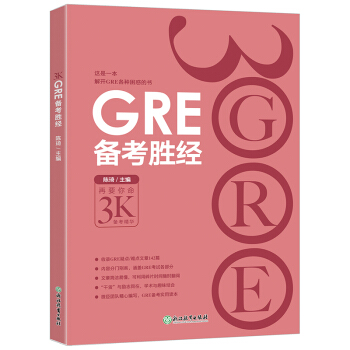

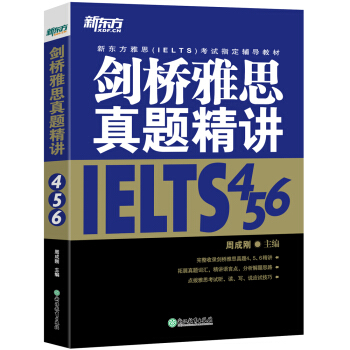
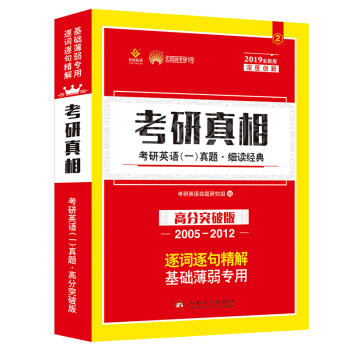

![小王子+动物庄园+老人与海+泰戈尔诗选+了不起的盖茨比 汉英对照 世界名著经典汉英对照套装(套装共10册) [The Little Prince+The Old Man and the Sea+Selected] pdf epub mobi 电子书 下载](https://pic.tinynews.org/12306641/5a94f880N732e2f53.jpg)
